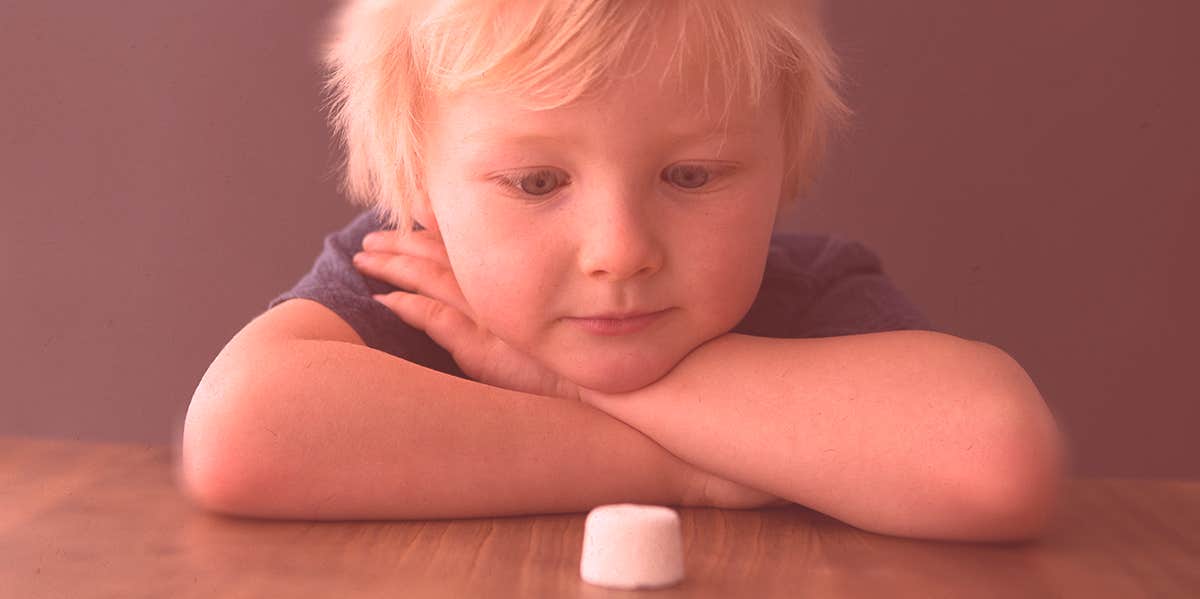The Simple Test That Will Tell You If Your Child Will Succeed
Does your kid pass the test?
 Josie Garner / Shutterstock
Josie Garner / Shutterstock Do you know how there are kids who still have Halloween candy in July? That wasn't me; I didn't even have leftover candy in November.
So, if, as a four- or five-year-old, I'd been brought into a plain room by an adult I trusted and given the choice to have one marshmallow now, or wait 20 minutes and get 2 marshmallows (or another delicious treat), my choice would've been clear: don't wait and eat the marshmallow immediately.
Delayed gratification has never been a talent of mine.
There is a simple test that'll tell you if your kid will succeed in life.
The Marshmallow experiments were a series of tests that started in the early 1960s, dreamed up by psychologist Dr. Walter Mischel.
These experiments are still going strong and are constantly updated, as Dr. Mischel has kept tabs on the subjects to see what kind of lives they ended up having.
The children who didn't eat their marshmallows were found (over the course of their lives) to have a lower BMI, lower rates of addiction, a lower divorce rate, and higher SAT scores.
Dr. Mischel's book The Marshmallow Test: Mastering Self-Control came out last year and shows why the Marshmallow Test means willpower, delayed gratification, temptation, and determination.
"We were interested in creating an intense conflict for the child," said Mischel in an interview.
During the experiment, Mischel observed that the children who were able to wait for two marshmallows displayed creative ways to distract themselves.
"I'm going to push this stuff as far away from myself as I can. I'm going to distance myself. I'm going to turn around in my chair and look the other way so that I don't see the stuff. I'm going to distract myself strategically. I'm going to sing little songs," said Mischel, explaining the thought process of the delayers.
Motivational Speaker Joachim de Posada and author of the book Don't Eat the Marshmallow ...Yet! created his own version of the Marshmallow test with children in Columbia.
If children gobble up their marshmallows right away, what does that mean for their future?
"I have no doubt that self-control skills ... are imminently teachable," said Mischel. And anybody, no matter what their age, can master the same cognitive skills kids use to distract themselves from the treat. "[For adults] you can turn something that's very appealing into something that's very aversive."
Patience is a virtue we should be reaching all children, whether it's with a marshmallow or not.
I'm still not good at delayed gratification, and I'm sure I'd eat the marshmallow right away.
Christine Schoenwald is a writer, performer, and astrology lover. She's had articles in The Los Angeles Times, Salon, and Woman's Day.
